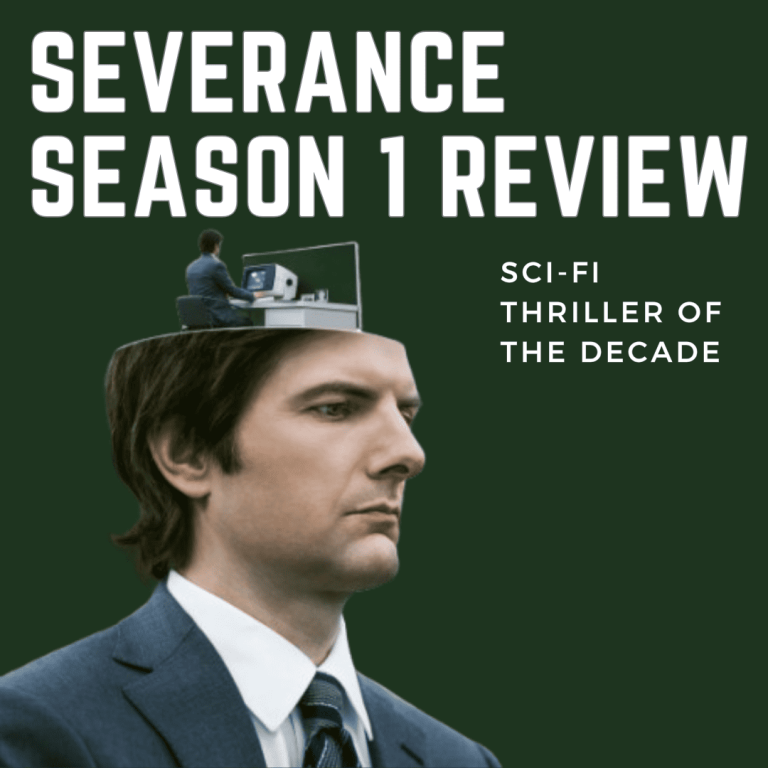Study Group K-Drama Review (2025): The High School Fight Club You Didn’t Know You Needed

A Flaming Backpack and a First Impression That Hooked Me
It all started with a single clip, a backpack on fire, someone flipping through the air, fists flying in a fight that felt like a live-action comic book. That was all it took. I had to watch Study Group.
I expected chaos, but I didn’t expect how well this show would blend action, comedy, and emotional storytelling. It’s a show about students trying to survive in a school where studying is practically illegal and fighting is the only thing that matters. Entertaining? Absolutely. Ridiculous? At times. Worth every second? No question.
Let’s get into my Study Group K-Drama Review.

A School Where Studying Gets You Beat Up
Yoon Ga Min just wants to go to college, but there’s one tiny problem, he sucks at studying. So, he decides to start a study group, believing strength in numbers might improve his chances. Sounds reasonable, right? Except he accidentally enrolls in Yuseong Technical High, a school where fighting isn’t just encouraged, it’s practically the curriculum.
Instead of study sessions, he finds himself in the middle of a student-run fight club, complete with a ranking system, an app that forces kids into battles, and a self-proclaimed king ruling from the shadows.
Most people would run. Ga Min? He decides to fight his way through it.
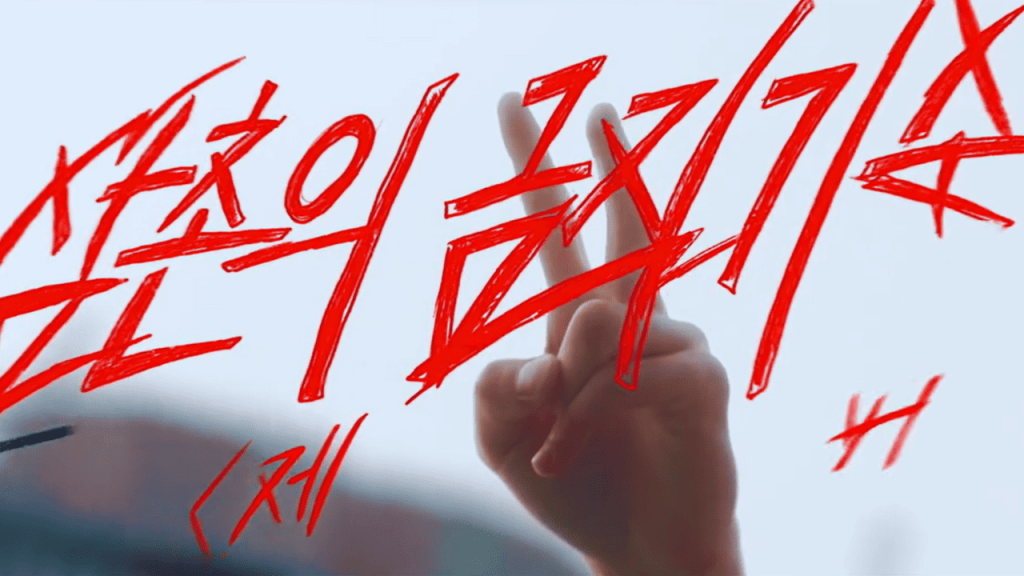
A Protagonist You Can’t Help But Root For
Ga Min is the definition of an underdog, but not in the way you’d expect. He’s not weak. In fact, he’s insanely strong. His issue isn’t surviving the school, it’s trying to study while doing it. He doesn’t fight for power or revenge. He fights because he believes in something as simple as the right to learn.
His determination is impossible to ignore. He doesn’t care about school rankings, gang politics, or who the strongest fighter is. He cares about getting into college, no matter how impossible that dream seems.
And when he sees others struggling under the same corrupt system, he doesn’t hesitate to fight for them, too.
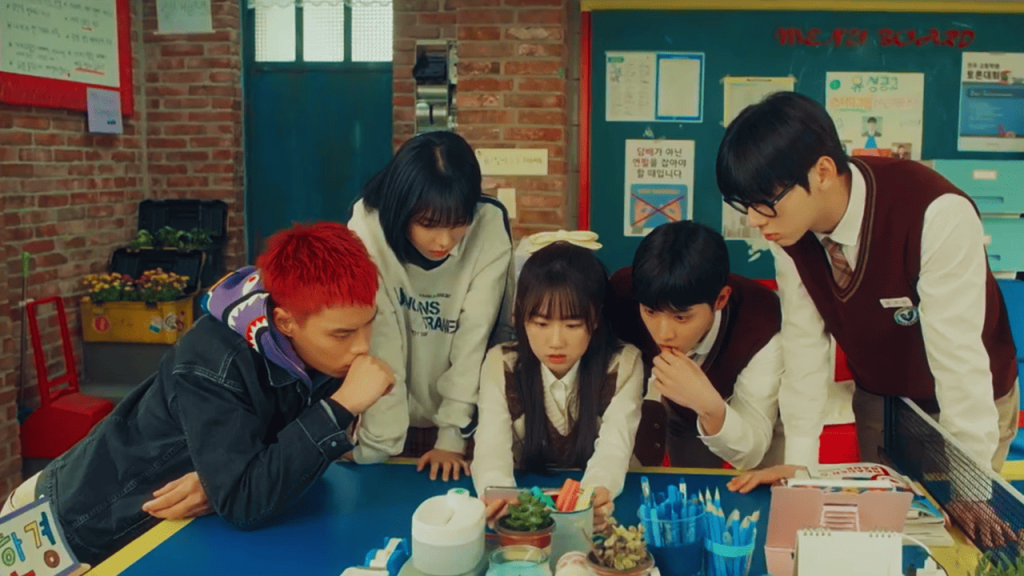
The Study Group That Became a Revolution
One of the best parts of Study Group is Ga Min’s slow but steady recruitment of his team. They may not be the strongest fighters, but they’re all fighting for something.
Kim Se Hyeon, bullied for being too smart, finally finds the courage to stand up for himself. Choi Hee Won and Lee Ji Woo bring a chaotic energy that balances out the group, with Ji Woo throwing punches first and asking questions later. And Gong Do Yoo, the one who can study, joins not to get smarter but to get stronger.
Together, they face constant danger just for wanting to do what should come naturally to students: learn. The bond between them is what gives the show heart. Watching them fight, both literally and figuratively for their futures makes their journey so satisfying.

Pi Han Wool: The Perfect Villain to Hate
Pi Han Wool is the kind of antagonist that makes your blood boil. He’s more than a school bully, he’s a full-blown crime boss in a school uniform. His father’s a gangster, the school is his personal playground, and he’s turned his classmates into foot soldiers for his own twisted hierarchy.
It’s not just that he’s powerful. It’s that he genuinely believes he’s untouchable. And for a while, he is. But when Ga Min punches him in the face in front of the entire school? That’s when things start to crack.
A Story That’s as Absurd as It Is Addictive
Study Group takes every school drama trope and dials it up to eleven. There’s corruption at every level. Teachers are either powerless or part of the problem. The police? Useless. And the only way to survive is to either fight or fall in line.
The story doesn’t just explore bullying and inequality, it weaponizes them. It’s extreme, but there’s a grain of truth in its chaos. When the system is rigged against you, how do you fight back? Ga Min’s answer is simple: with his fists.
The fights are gloriously over-the-top, the villains are comically evil, and yet, somehow, the emotional moments still hit hard. Beneath all the absurdity, there’s a real story about students who refuse to be broken.
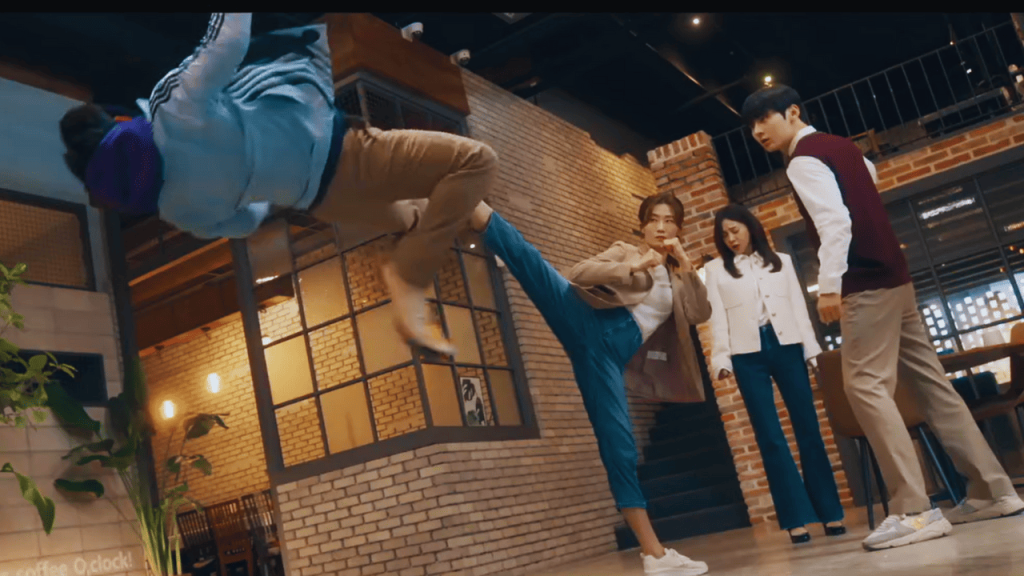
Study Group K-Drama Review: Scenes That Left a Mark
From the very first episode, Study Group delivers scene after scene that stays with you long after the credits roll. The first time Ga Min unleashes his “forbidden punch” technique? Cinematic gold. His mother high-kicking a gang of thugs in a café? Iconic. The moment he lands a hit on Pi Han Wool in the middle of a school assembly? Legendary.
And then there’s the finale. The all-out battle between the Study Group and Pi Han Wool’s forces is everything the show had been building up to, and it delivers. It’s predictable, sure but there’s something deeply satisfying about watching Pi Han Wool finally lose.

Was the Ending Worth It?
Some K-dramas fumble in the final episode, but Study Group sticks the landing. The story wraps up with a clear victory, but it also leaves just enough open for a potential second season.
Ga Min’s past is still a mystery, who taught him to fight like that? What happens now that the school is free from Pi Han Wool’s rule? And most importantly, does he finally get to focus on studying?
I need answers.
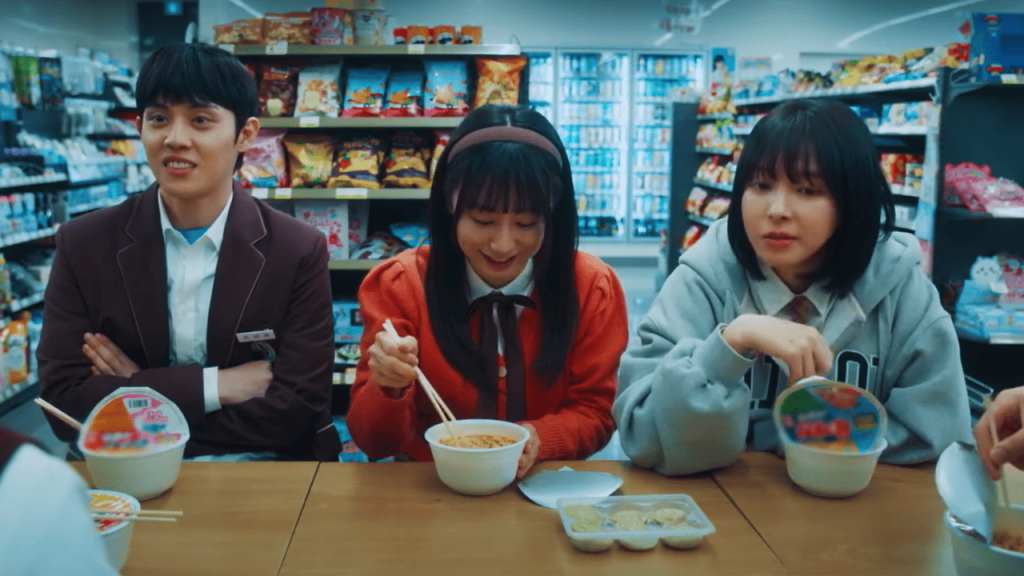
Should You Watch Study Group?
If you love action-packed dramas with a ridiculous but satisfying story, Study Group is a must-watch. It’s not trying to be realistic. It’s not trying to be deep. It’s trying to be fun and it absolutely succeeds.
If you’ve ever fantasized about decking a school bully but lacked the physical ability to do so, this show is the perfect catharsis.
What’s Next?
Still thinking about the chaos of Study Group? Check out my Severance Season 1 Review—a different kind of battle against a broken system.
And if you’ve already watched Study Group, tell me, what was your favorite moment? Do you want a Season 2? Let’s discuss.
Disclaimer: This blog is for informational and entertainment purposes only. All copyrights and trademarks for the TV shows, films, and other media referenced are the property of their respective owners. This blog aims to provide original commentary and insights and claims no ownership over third-party content.




